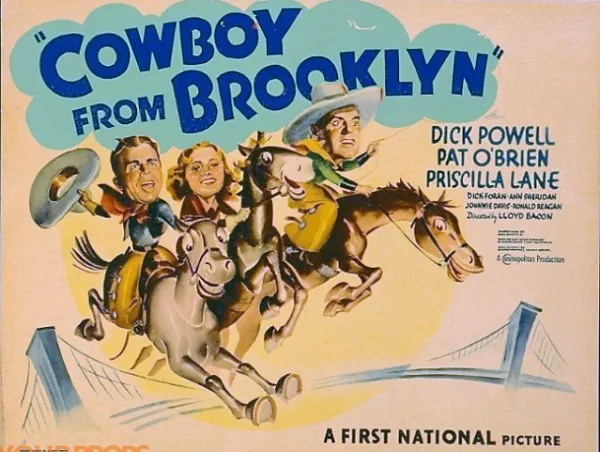Issue #117: The Great Bro-Demption

In 2016, I took a ride with Jake Owen in his VW bus and listened to Mel Street records for Rolling Stone. I was almost nine months pregnant, so I am honestly shocked I could put words together – at the time, Owen was working hard to rehab his image of eternal beachy blue jean dude while still making something viable for Music Row. At times, he seemed more interested in playing me and talking about classic country records than his own album, and I could tell he was frustrated: it’s a pattern I’d seen time and time again with men in Nashville, where they feel boxed in by their own success and feel the need to keep making shit that people want to listen to while getting extremely drunk at a music festival. So it’s something I continually pushed on in interviews with country radio dudelings (is this the opposite of darling?), and still do. I wanted to understand the music they came to Nashville wanting to make, vs. the music they ended up making, and how the boxes and machinery of the town had pressed them into corners, while also giving them plenty of leash to have some self-awareness in how their own actions played a big role here, too. Money and comfort and success are all nice once you taste ‘em.
After listening to Owen praise a George Jones tune, I asked him: would you ever make a classic country album of your own?
“I’d like to,” he said. “Maybe they can sell it at Cracker Barrel.”
Owen got the rock and the hard place he was stuck between – or, to mix a million different metaphors, he’d made his bed and knew he had to sleep in it. But it was clear he was thinking about something else.
Almost a decade later, it looks like Owen’s finally done it: Dreams to Dreams, an album he co-produced with Shooter Jennings of new and old trad country tunes, will be out November 7th. Three songs are already released, including a cover of Waylon Jennings’ “Them Old Love Songs.” And you know what? It sounds really good. Owen’s always had a great voice, but it always felt kind of wasted on songs like “Barefoot Bluejean Night” that existed in this amorphous, beachy bro-country nongenre. I can’t help but like a redemption story – listening with open ears might make for less pithy internet editorial, but I think it makes us better humans.
I like looking at systems much more than I like looking at people, when it comes to fixing problems. Yes, without individuals the systems would not run, but we do far too little work in holding labels and radio accountable because it’s much more entertaining to make fun of a bad song. Assuming that every man in country music who helped make bro-country what it is is beyond reproach for ever is boring, and, like I said, so many of them came to town looking for music and got distracted by the dollar. Isn’t it interesting to wonder how they found their way back?
That’s why I enjoyed sitting down with Chase Rice last year to talk about Go Down Singin’, his album meant to help reconnect with himself as a songwriter, and a very country one at that – or maybe even discover that person in the first place. As one of the architects of bro-country (he co-wrote “Cruise”), he’s now been one of the pioneering bros in this new movement: Go Down Singin’ was quite good, and so is Eldora, which was just released. Rice was shockingly honest when we spoke, admitting how he hadn’t heard of John Prine until 2017, and how he struggled so hard just to stay relevant for country radio and popularity. And sure, you can be skeptical that this is all just another attempt to do the same in a different context but a) these songs aren’t making country radio money and b) who cares if the music is good? Don’t we want people to grow and change? Isn’t that the whole point?
Others have tried it, too, to varying degrees of success. The radio plays dry up, so you go independent (or get dropped?) and release something more "country." Canaan Smith’s Chickahominy, for one, though that one didn’t really do it for me. And I wouldn’t be me if I didn’t point out that there are women, and men, out there making this kind of music from the get-go, and who didn't need to have tried the radio ringer to find themselves. But, again, sometimes you gotta take the long way.
Hardy and Earnest have even tried to do some post-bro commentary with their “Bro-Country.” I’m not a Hardy hater, and recently learned that neither is boygenius? But this doesn't work for me. The tune is sort of a farewell/kissoff to bro country, and shepherding in this new area of more “outlaw,” trad-country sounds. “Whiskey and bandits, outlaws with long hair, yeah we’re back with vengeance.” Sigh. Sturgill Simpson, Tyler Childers, Margo Price, Kelsey Waldon, Chris Stapleton, The Highwomen have all been here for a decade plus now, and I could go on, and they're not trying to chase some silly proto-masculine version of what chatgpt things "outlaw country" actually is. (Also, country radio hasn't really changed, so....)
I think what I like about the Owen and Rice music is that it doesn’t try to chase that sort of mythology - it just seems to try and chase the song. I'm here for that. Bring on the bro-demption.




